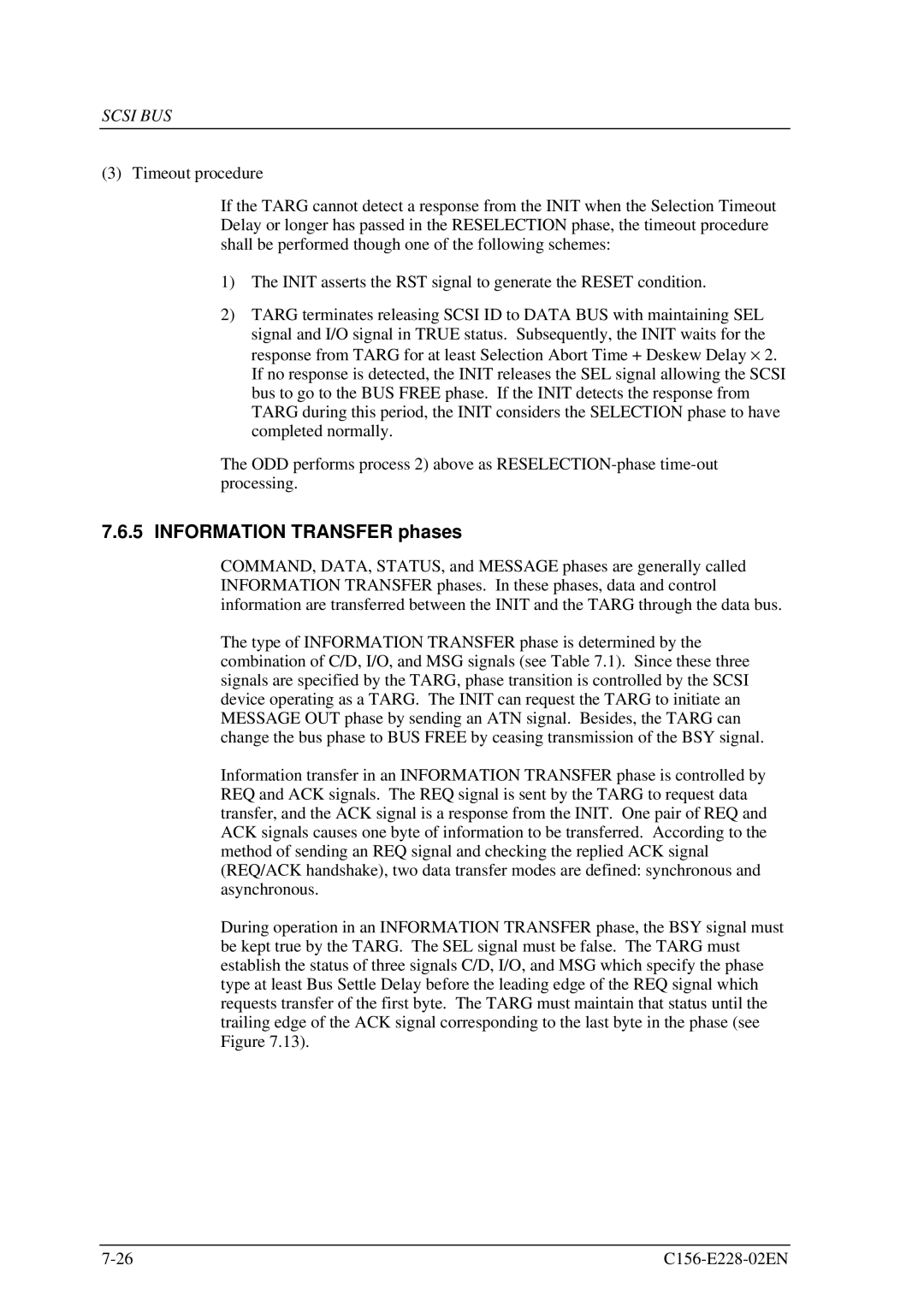
SCSI BUS
(3) Timeout procedure
If the TARG cannot detect a response from the INIT when the Selection Timeout Delay or longer has passed in the RESELECTION phase, the timeout procedure shall be performed though one of the following schemes:
1)The INIT asserts the RST signal to generate the RESET condition.
2)TARG terminates releasing SCSI ID to DATA BUS with maintaining SEL
signal and I/O signal in TRUE status. Subsequently, the INIT waits for the response from TARG for at least Selection Abort Time + Deskew Delay ⋅ 2. If no response is detected, the INIT releases the SEL signal allowing the SCSI bus to go to the BUS FREE phase. If the INIT detects the response from TARG during this period, the INIT considers the SELECTION phase to have completed normally.
The ODD performs process 2) above as
7.6.5 INFORMATION TRANSFER phases
COMMAND, DATA, STATUS, and MESSAGE phases are generally called INFORMATION TRANSFER phases. In these phases, data and control information are transferred between the INIT and the TARG through the data bus.
The type of INFORMATION TRANSFER phase is determined by the combination of C/D, I/O, and MSG signals (see Table 7.1). Since these three signals are specified by the TARG, phase transition is controlled by the SCSI device operating as a TARG. The INIT can request the TARG to initiate an MESSAGE OUT phase by sending an ATN signal. Besides, the TARG can change the bus phase to BUS FREE by ceasing transmission of the BSY signal.
Information transfer in an INFORMATION TRANSFER phase is controlled by REQ and ACK signals. The REQ signal is sent by the TARG to request data transfer, and the ACK signal is a response from the INIT. One pair of REQ and ACK signals causes one byte of information to be transferred. According to the method of sending an REQ signal and checking the replied ACK signal (REQ/ACK handshake), two data transfer modes are defined: synchronous and asynchronous.
During operation in an INFORMATION TRANSFER phase, the BSY signal must be kept true by the TARG. The SEL signal must be false. The TARG must establish the status of three signals C/D, I/O, and MSG which specify the phase type at least Bus Settle Delay before the leading edge of the REQ signal which requests transfer of the first byte. The TARG must maintain that status until the trailing edge of the ACK signal corresponding to the last byte in the phase (see Figure 7.13).
